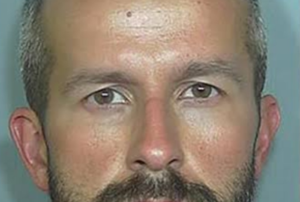A new partnership between Parkland Health and the Dallas Housing Authority makes it easier for residents to obtain affordable medical homes.
A housing voucher from the Department of Housing and Urban Development (DHA) and enrollment in Parkland’s Financial Assistance program used to require individuals to submit almost identical documentation on their residence, family composition, and income levels prior to the initiative. Residents of DHA will be able to avoid duplicating appointments and submitting identical information in order to qualify for free or reduced-price care at Parkland Health based on an income-based sliding scale, according to the new cooperation between the two organizations. One obstacle to caring for Dallas County’s vulnerable people has been removed by the shared eligibility for DHA and PFA.
Taking three or four hours out of your day to go from agency to agency is income that you’re losing, according to Mike Malaise, senior vice president of external relations at Parkland Health. This is especially true for folks who are trying to go ahead financially and rebuild their circumstances.
Residents who are unable to pay for health insurance or other out-of-pocket costs can get the medical attention they need through PFA, a charitable care program that offers discounted or free rates depending on income. By enrolling in the program, individuals can lower their healthcare costs and gain access to preventive interventions that boost results while decreasing overall spending. Parkland, being a safety net hospital, serves all patients equally regardless of their capacity to pay. However, patients who are enrolled with PFA can connect with community health workers who can assist them in obtaining a primary care physician and other services.
There is a 24-hour nurse line, pharmacy, radiography, laboratory, specialized, women and infants, and emergency services available through PFA.
According to Malaise, patients will be less likely to put off getting medical treatment for fear of incurring a large expense if their financial obligations regarding that care are well defined. The fear of ruining their finances by visiting a hospital causes them to “let bad problems become worse problems,” he explains. “Once they’re in the program, they’ll know it’s not going to be a gouge at the hospital and how to access the services.”
The taxpayers who fund Parkland’s charity and low-income care programs will benefit from the alliance because patients who have a closer relationship to the healthcare system are less likely to experience unanticipated complications down the road. The high cost of care and the low percentage of health insurance have contributed to one of the worst medical debt rates in the nation, which is concentrated in North Texas.
The 55,750 Dallas County residents who get housing from DHA will have their healthcare application processes simplified, even though not all DHA residents will be automatically approved.
We are committed to our purpose of expanding low-income families’ and individuals’ access to helpful services in North Texas, and we look forward to carrying it out every day. “The health of the people we serve is paramount to our mission,” remarks Troy Broussard, president and chief executive officer of DHA. To improve Dallas citizens’ access to life-saving medical treatment, we are “thrilled to embark on this partnership with Parkland.”





